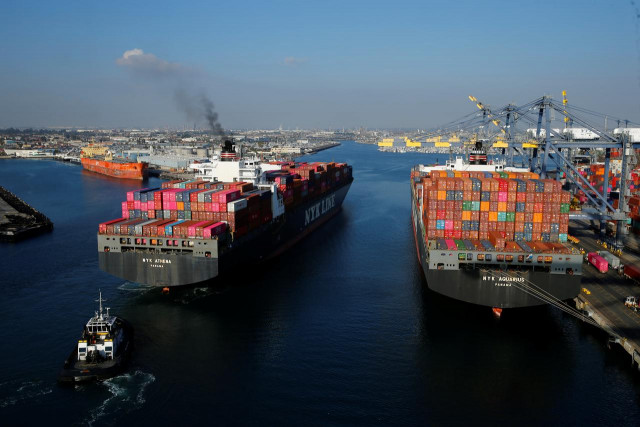Pakistan exports sugar, rice to China under $1b package
Senate committee briefed on the incentive package for export of rice, sugar and cotton yarn

PHOTO: REUTERS
Briefing the Senate Standing Committee on Commerce on Tuesday, the adviser said China had extended the duty-free package for the export of rice, sugar and 350,000 tons of cotton yarn.
Committee Chairman Mirza Muhammad Afridi was of the view that the domestic textile industry would be hurt by the export of yarn as its prices would surge in Pakistan’s market.
However, Dawood said Pakistan produced a huge quantity of cotton yarn so no such issue would arise. He added that textile-related industries were now giving good results as even closed factories had resumed production and there were hopes that textile exports would go up in coming days.
He informed meeting participants that he would be accompanying Prime Minister Imran Khan during the upcoming visit to China, where second phase of the free trade agreement (FTA) would be signed.
Under the agreement, Pakistan will get duty-free market access equivalent to that already enjoyed by member countries of the Association of Southeast Asian Nations (Asean) from China. “Although it took a long time to finalise the second phase of FTA, I would like to appreciate the Chinese government’s support in this regard.”
Senator Nauman Wazir pointed out that the government should get assurance from the Chinese side that it would not impose non-tariff barriers on imports from Pakistan.
Dawood pointed out that all such matters had already been discussed with China and he would further talk to Chinese authorities to get such assurances.
Talking about the performance of textile sector, Senator Shibli Faraz said the sector had become a ‘spoilt child’ by getting unnecessary subsidies. The productivity, efficiency and quality of the textile sector was not up to the mark despite getting huge subsidies and average monthly textile exports never exceeded $1.2 billion in the past 20 years.
Endorsing the senator’s stance, the adviser said the textile industry needed assistance around 15-20 years ago but now there was no need to offer any subsidy to the sector. However, he was of the view that the garment industry needed support owing to high prices of land, therefore, the government was mulling over extending long-term financing to garment manufacturers for the purchase of land and buildings to establish their industrial units.
Dawood told the committee that the government was engaged with Japan for the purchase of modern textile machinery and expressed hope that in the next six months an agreement would be finalised.
Senator Wazir suggested that the government should conduct a value chain analysis in the textile sector to find out the reasons behind the decrease in textile exports. He said commercial counsellors in Pakistani embassies abroad should also be bound to give feedback from their respective countries in order to find out potential markets in various parts of the world.
“If we want to boost our exports beyond $50 billion, we must have a look at areas other than textile,” Dawood remarked.
He pointed out that the engineering sector had a market share of over $4 trillion across the globe and it could help increase Pakistan’s exports to the desired level.
Published in The Express Tribune, April 24th, 2019.
Like Business on Facebook, follow @TribuneBiz on Twitter to stay informed and join in the conversation.


















COMMENTS
Comments are moderated and generally will be posted if they are on-topic and not abusive.
For more information, please see our Comments FAQ